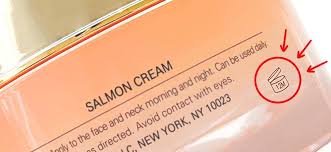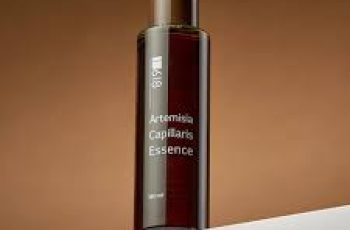
When Do Skincare Products Expire?
Your skin is the first line of defense against exposure to the sun, germs, extreme cold, and toxic substances.1 However, it can also become easily damaged. Sunscreen and other skincare products can help protect your skin and keep it strong and healthy.
Some skincare products can degrade or expire over time. This can cause the products to become less effective and potentially develop bacteria that can put you at risk for skin infection or irritation.2 There are a few ways to know how long your skincare products will last, if they’re expired, and how to help them last longer.
How Long Will Your Skincare Last?
The type of skincare product, how it’s used, and where it’s stored all influence the product’s shelf life. However, no specific guidelines determine the shelf life of cosmetics or general skincare products. The U.S. Food and Drug Administration (FDA) considers it the manufacturer’s responsibility to determine a product’s shelf life.2
Some products show a “period after opening” symbol (PAO). This symbol is often on the lid or the seam of a tube and contains a number before the letter M. So, a PAO symbol of 6M would mean that your skincare product lasts six months after it’s opened. Using a PAO symbol is not required in the United States, though more companies are starting to adopt the practice.3
The FDA requires expiration dates on sunscreens, acne medications, and moisturizers that contain SPF because the FDA classifies these products as over-the-counter (OTC) drugs.4 For instance, the FDA requires sunscreens to maintain their original strength for at least three years.52
If you purchase sunscreen and the expiration date is missing, dermatologists recommend writing the date of purchase on the container. This way, you know to throw the sunscreen out in three years. Using sunscreen after the expiration date can put you at risk for sunburn or other skin damage.36
Factors That Influence Shelf-Life
After you open a skincare product, it will start to degrade over time, especially as it is exposed to air and changing temperatures. This, along with other factors, can cause microorganisms to grow and multiply, potentially causing irritation, infections, and rashes. Factors that influence the shelf-life of your skincare products include:2
U.S. Food and Drug Administration. Shelf life and expiration dating of cosmetics.
Application method: Using your fingers to remove moisturizers, creams, and salves from jars can expose the skincare product to bacteria and fungi (such as mold and yeast) on your hands. Using the same applicator repeatedly without cleaning it can also expose the skincare product to bacteria and fungi.
Exposure to moisture: Exposing your skincare products to moisture, such as in a warm, steamy bathroom, can encourage bacteria and fungi to grow.
Type of product: For similar reasons above, water-based products are more prone to bacteria growth than powder-like products.
Changing temperatures: Allowing your skincare products to experience fluctuating temperatures can cause products to separate, dry out, or change textures.
Long-term storage: Keeping skincare products longer than recommended allows preservatives to break down and weakens their ability to control microorganisms.
Multiple users: Sharing products can influence the self-life of a skincare product and expose it to additional bacteria and fungi.
Preservatives: Natural or organic products without preservatives usually have a short shelf-life.
Signs Your Product Has Expired
You may be hesitant to throw out skincare products, especially if they are expensive or if there is a lot of product left. One study found that more than half (55%) of people do not usually throw away their makeup or skincare products. This practice puts you at risk for several skin-related irritations.7
Every few months, take a closer look at your skincare products. Check each product’s PAO symbol or expiration date and evaluate the color, consistency, and smell. You may want to consider tossing the product if it:35
Has a different color or texture than when you bought it
Exhibits changes in consistency
Has noticeably separated
Looks or feels dry, flaky, or crumbly
Feels different on your skin
Has a bad odor or smells funny
Health Risks of Using Expired Products
Using expired skincare products puts you at risk for several skin or health conditions. For instance, using old products that have lost their effectiveness may lead to irritated skin, sunburn, an allergic skin reaction, or another unexpected side effect.3
Bacteria and fungi can also contaminate your skincare products as you use them over time. Not disposing of the products in a timely manner can put you at risk for rashes, acne breakouts, eczema, and other skin conditions.3
You could also develop a skin infection, such as impetigo (a contagious skin infection typically caused by Streptococcus or Staphylococcus bacteria) or folliculitis (hair follicle inflammation).3
Tips For Storing and Caring For Your Products
The best way to store your skincare products to stay fresh and germ-free is to keep them at room temperature and out of direct sunlight. Some options include a cabinet, drawer, or lidded box.35
Some people use cosmetic refrigerators, which are very small fridges that keep your products at a consistent temperature. These devices are especially useful for natural products that do not contain preservatives. Cold temperatures help keep products cool and dry and can help slow the breakdown of certain ingredients, like vitamin C, which oxidizes easily.8
Other tips for storing your products include the following:32
Avoid storing your products in the bathroom, where it gets humid and moist
Replace the caps and lids to your skincare product containers to keep the contents from getting contaminated
Keep your products at a consistent temperature when traveling. For instance, avoid leaving them in a hot car
Wash your hands before applying skincare products to reduce the risk of contamination
Don’t share your skincare products with other people
Use spatulas, sponges, and other utensils to apply skincare products, and clean them between uses
A Quick Review
The shelf life of your skincare products can vary depending on the type of product, how it’s used, and how it’s stored. To prolong the life of your products, keep them in a cool, dry place and try to avoid contamination. Using a spatula to get creams out of jars, avoiding sharing your products with others, and replacing caps and lids can help prevent bacteria growth.
Also, keep in mind that the FDA does not require expiration dates for products other than sunscreen, acne medications, and moisturizers with SPF. It is up to manufacturers to communicate this information and ensure safety. For this reason, some skincare companies use period after opening (POA) symbols to communicate how long a product will last after it’s opened.
If a product doesn’t have an expiration date or a POA symbol, you can look for signs that it has expired, such as its appearance, smell, and texture. Using expired products may lead to breakouts, skin infections, and allergies, so it’s best to toss them after expiration.


